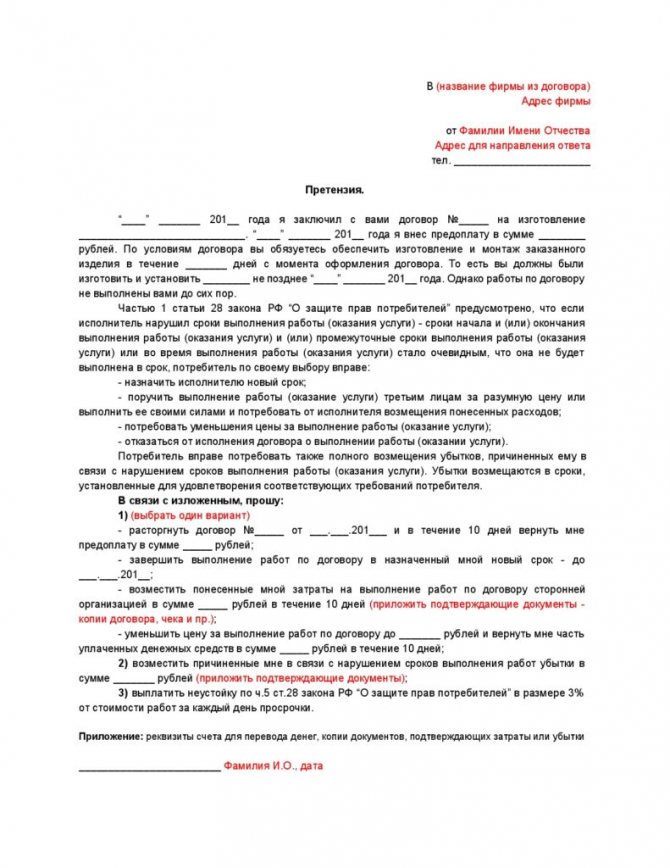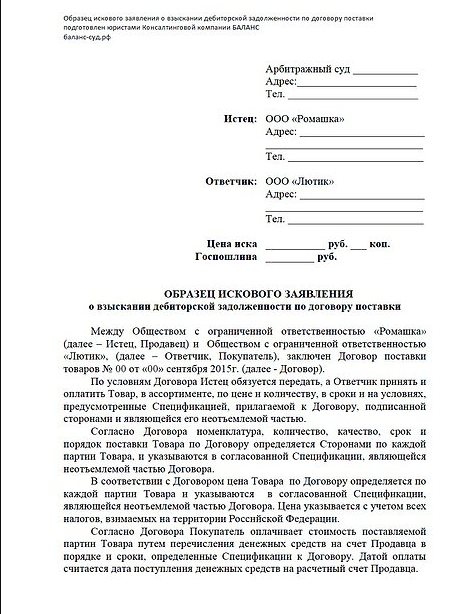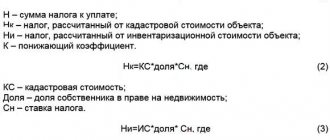The concept of a penalty under the Civil Code of the Russian Federation and its types: legal or contractual
According to paragraph 1 of Art.
330 of the Civil Code of the Russian Federation (hereinafter referred to as the Civil Code of the Russian Federation), a penalty is a measure of civil liability for non-fulfillment or improper fulfillment of an obligation, including late fulfillment. It may be provided for by law or contract. In the latter case, the agreement on the penalty must be drawn up in writing (Article 331 of the Civil Code of the Russian Federation), otherwise this measure will not be considered established.
Let's consider what kind of penalty is possible in contractual relations. It happens in a row:
- household;
- construction;
- for design and survey work;
- for state and municipal needs.
In accordance with Art. 395, paragraph 1, art. 708, Art. 712, 723, 739, 754, 761 of the Civil Code of the Russian Federation, the main measures of influence on the violator under a contract transaction are:
- retention of work results in case of late payment;
- free elimination of defects, proportionate price reduction, reimbursement of expenses for eliminating defects;
- recovery of damages;
- collection of interest for the use of other people's funds.
Legal penalties under a contract are provided only for state (municipal) contracts (Parts 6–9, Article 34 of the Law “On the Contract System...” dated 04/05/2013 No. 44-FZ). For other types of contractual relations, such a measure is not prescribed by current legislation. Consequently, a penalty under a work contract under the Civil Code of the Russian Federation can only be contractual, and only under this condition is it recovered from the guilty party.
General points
The customer directly undertakes to pay the contractor for the services provided, including the volume of work performed.
All agreed work must be performed in the best quality so that the customer is satisfied, in compliance with the established deadlines for the DP.
Separately, if stated in the agreement, it is permissible to complete the work earlier, but only with the consent of the customer.
The legislation of the Russian Federation or the agreement itself (AP) in case of violation of deadlines, including non-fulfillment of the contractor, is the imposition of liability on the latter, together with the application of a penalty (fine, fine).
What you need to know
Penalty on this topic is determined by two types:
- negotiated;
- legal.
Let's decipher the concept for each example. A penalty that is legal in nature implies the collection of its legal amount and does not depend on the wishes of the debtor.
It should not be confused with a penalty for failure to fulfill obligations under a contract. To understand this type of collection, you can look at alimony, which is assigned a certain amount.
In relation to the second type, a contractual penalty is developed by the parties to the contract, and the reasons why collection may occur are previously discussed.
The legislation of the Russian Federation does not have restrictions in this matter, namely for contracts with a pre-agreed amount of the penalty.
In what cases is it charged?
The breakdown of the procedure for calculating penalties (fines and fines) is determined by the Civil Code of the Russian Federation.
Therefore, the basic concept is taken from Article 307 of the Civil Code of the Russian Federation, which states that the debtor undertakes to provide the creditor (customer) with a certain monetary portion for the resulting penalty. Penalty, as a rule, arises when the terms of the agreement are violated.
Current standards
In paragraph 1 of Art. 329 of the Civil Code of the Russian Federation states that the leading value of the penalty looks like a measure to fulfill the obligation, assigned after signing the contract to the executor.
Next, it is worth paying attention to paragraph 3 of Article 329 of the Civil Code of Russia, which states that in the event of termination of a contract or recognition of the invalidity of a transaction (certain relationships), the right to collect a penalty expires.
The limitation period is determined by Article 207 of the Civil Code of the Russian Federation. According to Article 330 of the Civil Code of the Russian Federation, from the moment a violation of the terms of the contract is recorded, the obligation to pay a penalty begins.
The form of the agreement itself is formed in writing. Failure to comply with this form, as stated in Article 331 of the Civil Code of Russia, may lead to non-recognition of the document.
Calculation of penalties under a contract: construction, household and other types
In any contract, the penalty is established in the form of a fine or penalty. Depending on this, its calculation is carried out:
- A fine is a lump sum that can be set as a fixed amount or as a percentage. The provision regarding the fine is considered agreed upon if the text states its amount and cases of payment.
When the fine has a specific amount, it does not need to be calculated. If it is indicated as a percentage, it is determined by the formula:
Fine amount = Settlement amount × Percentage / 100,
where the settlement amount must be specified in the contract.
- The penalty is calculated, as a rule, as a percentage of the amount of the unfulfilled obligation for each day or other period of violation of obligations. The penalty is recognized as established when the text defines its size, terms of payment and the period of delay for which it is accrued. In the absence of the last condition - the period of delay - the penalty can be qualified as a fine and paid once.
If the penalty is set as a percentage per annum, it is calculated using the formula:
Penalty = (Settlement amount × Days of delay × Interest) / (Number of days in a year × 100).
If the penalty is determined as interest for each day, use the formula:
Penalty = (Settlement amount × Days of delay × Interest) / 100.
The settlement amount is determined based on the terms of the contract. The period of delay is from the next day after the last day of fulfillment of the obligation until the day of its actual fulfillment, inclusive (clause 65 of the Resolution of the Plenum of the Armed Forces of the Russian Federation “On the application by courts...” of March 24, 2016 No. 7, hereinafter referred to as Resolution No. 7).
Pre-trial settlement
If the case for the collection of a penalty is being considered in an arbitration court, before filing a statement of claim in an imperative manner, you must follow the procedure for pre-trial resolution of the dispute by filing a claim (Part 5 of Article 4 of the Arbitration Procedure Code of the Russian Federation, hereinafter referred to as the Arbitration Procedure Code of the Russian Federation). Otherwise the court:
- will leave the application without progress or return it (part 1 of article 128, clause 5 of part 1 of article 129 of the Arbitration Procedure Code of the Russian Federation);
- will not consider the claim if it was nevertheless accepted (clause 2, part 1, article 148 of the Arbitration Procedure Code of the Russian Federation).
The claim is made in free form. It is recommended to indicate:
- date and place of filing the claim;
- complete information about its recipient and sender;
- list of committed violations;
- a link to the article of the contract providing for a penalty;
- calculation of the amount of the penalty;
- voluntary payment period;
- details for transfer;
- details of the person signing the claim.
You can submit a claim in several ways:
- hand over in person against signature;
- send by a valuable letter with a list of the attachment to the address specified in the contract or the address from the Unified State Register of Legal Entities/Unified State Register of Individual Entrepreneurs (clause 63 of the resolution of the Plenum of the Armed Forces of the Russian Federation “On the application by courts...” of June 23, 2015 No. 25).
If the guilty party has not received the letter, a claim can be filed after the period for storing the letter at the post office has expired. Correspondence is stored for 30 days from the date of receipt at the post office.
Statement of claim for recovery of penalties under a contract
Before submitting an application, you must determine the jurisdiction. As a general rule, a claim for the recovery of a penalty under a work contract is filed with the arbitration court at the location or residence of the defendant. Although the contract may determine another court (Article 37 of the APC).
The claim is drawn up in accordance with the provisions of Art. 125 Arbitration Procedure Code of the Russian Federation. As a rule, the requirement to collect a penalty under a construction contract and other types of contract is additional to the main one - the fulfillment of certain conditions (payment of the contract, implementation of work, etc.). But it can also be independent.
Documents are attached to the statement of claim according to the list from Art. 126 Arbitration Procedure Code of the Russian Federation. There must be an agreement and calculation of the penalty. As we have already said, the amount of the penalty is calculated in accordance with the terms of the contract.
After paying the state fee and sending the appropriate package of documents to the defendant and other participants in the process, the statement of claim with all attachments can be filed with the court.
The guilty party will pay a penalty under the contract regardless of whether the plaintiff stated this requirement in court or not (resolution of the Ninth Arbitration Court of Appeal dated April 24, 2007 No. 09AP-4374/2007-GK in case No. A40-79402/06-62-233 ). At the same time, recognition of the principal debt by the defendant will not be an automatic recognition of the penalty.
Procedure for resolving a dispute under a contract
The construction of new buildings, buildings, structures will always be relevant. Houses are deteriorating, becoming unusable, megacities and towns are expanding, microdistricts are growing, therefore, the construction sector will always be significant.
In fact, disputes in the courts related to the construction contract will also be relevant.
Disputes in the construction industry constitute a significant volume of cases considered by the arbitration court. As a rule, disputes related to payment for construction work performed, the quality of the work performed, as well as the timing of fulfillment of contractual obligations are considered.
As judicial practice shows, disputes in the construction industry are quite diverse, but the increase in the number of similar disputes being considered indicates that the parties, when concluding a construction contract, do not fully analyze possible legal risks.
ATTENTION: watch video arbitration disputes and subscribe to our YouTube channel right now to be able to receive free legal advice in the video comments:
Cases of reduction of penalties
Art. 333 of the Civil Code of the Russian Federation gives the guilty person the right to ask the court to reduce the penalty. To do this, some conditions must be met:
- If the violator is an individual entrepreneur or an organization, the court may consider reducing the sanctions only after receiving a statement or petition from the guilty person. Moreover, such an appeal is not considered evidence or recognition by the defendant of the fact of violation of the contract (clause 71 of Resolution No. 7).
- At the same time, the defendant’s objections cannot be considered a petition for the proportionality of measures of responsibility (resolution of the Presidium of the Supreme Arbitration Court of the Russian Federation dated June 17, 2014 No. 1850/14 in case No. A40-140910/12-134-1087, dated October 22, 2013 No. 801/13 in case No. A40-118783/11-59-1052).
- In addition, in his application, the violator must prove that satisfying the requirements for a penalty will lead to unjust enrichment of the plaintiff (clause 77 of Resolution No. 7).
- If the defendant is another person, the court may reduce the penalty on its own initiative (clause 71 of Resolution No. 7).
- The court cannot reduce the penalty for monetary obligations below interest on bank deposits of individuals in the region where the case is being considered (clause 72 of Resolution No. 7).
Restriction of the right or waiver of the right to ask for a reduction in the penalty is void (clause 69 of Resolution No. 7).
Judicial practice on the collection of penalties
Let's look at the most interesting cases from judicial practice, illustrating common problems of collecting penalties under a contract:
- The parties may stipulate in the transaction a condition that the customer withhold a penalty upon final payment for the work. In this case, there is no need to go to court. This possibility was also supported by the highest court (resolutions of the Presidium of the Supreme Arbitration Court of the Russian Federation dated June 19, 2012 No. 1394/12 and dated July 10, 2012 No. 2241/12). This judicial practice for collecting penalties under a contract can be used by companies in their activities.
- If the implementation of a work contract is divided into intermediate stages, the plaintiff does not have the right to charge a penalty for the entire amount, but is obliged to reduce it by the cost of work already completed (resolution of the Far Eastern District of 01.09.2017 No. F03-3172/2017 in case No. A73-15641/ 2016).
- If previously the penalty for late payment for work was accrued without VAT, now it is calculated on the full amount, including VAT (resolution of the Federal Antimonopoly Service of the Volga District dated November 24, 2011 in case No. A12-3382/2011).
- According to established judicial practice, a contract can provide for a penalty clause in favor of the party that refused the transaction, if the refusal occurred through the fault of the other party. This condition does not contradict the law (resolution of the Presidium of the Supreme Arbitration Court of the Russian Federation dated June 11, 2013 No. 1396/12 in case No. A55-25605/2010).
- Contract provisions imposing penalties for each individual defect are not considered illegal. The courts consider such measures as a penalty (resolution of the Federal Antimonopoly Service of the East Siberian District dated June 15, 2010 in case No. A33-20347/2009).
Collection procedure under a construction contract
Collection is a demand, which means it is considered in the generally accepted manner, based on the provisions of civil and consumer laws.
First of all, you need to try to resolve the disputed situation peacefully. First, let's write an official complaint. It is drawn up in the name of the head of the company and includes justification for receiving funds, evidence of fulfillment of contractual terms and, most importantly, a requirement to repay the debt. The claim, along with the necessary documents, is sent to the addressee by registered mail or delivered in person.
It must be admitted that this action does not always guarantee that the debtor will fulfill the desired requirements. In this case, you can try to negotiate in order to find a compromise to resolve the dispute (payment of the debt in installments, its reduction or restructuring).
Free legal consultation We will answer your question in 5 minutes!
Ask a Question
Free legal consultation
We will answer your question in 5 minutes!
Ask a Question
The final stage is going to court. The claim is sent to a court of general jurisdiction, and if the parties are legal entities, then to an arbitration court. The following must be attached to the application:
- a bilateral agreement reflecting the fact of the legal relations of the parties and the conditions on which they agreed;
- confirmation that the work has been completed as specified in the agreement;
- evidence that the money was not transferred or was not transferred in full;
- expert conclusions if the customer has doubts about the completeness or quality of the work performed;
- a copy of the claim and proof of its delivery.
How and when to file a penalty for collection
To make a claim for monetary compensation, it is necessary to complete the work under the contract or terminate it. Compliance with this norm is necessary, since the penalty for failure to fulfill obligations under a work contract is calculated up to the day the work begins or ends (depending on how the period is formulated in the contract). You can make a claim earlier by calling on the debtor to complete the work and indicating the amount of the penalty that has already accrued.
At the time of completion of cooperation, recalculation is performed. This can only be done in the case of pre-trial, voluntary fulfillment of the demand by the debtor. Judicial collection of penalties for delay under a contract involves filing a statement of claim indicating the exact amount
Pre-trial collection of penalties
A claim for a penalty under a contract is the first step towards its actual recovery. It is drawn up on the basis of a concluded contract with a mandatory indication of the period specified in it, the duration of the delay and the accrued amount of the penalty. The calculation is made taking into account the percentage specified in the contract. The document is drawn up in two copies - one remains with the creditor, the second is handed over against signature or sent by mail to the creditor. The postal item must be accompanied by an inventory and notification.
This is also important to know:
How is money collected under a contract?

Collection of penalties from the customer under a contract also begins with sending him a written claim. Since the performance period is usually calculated from the moment the advance payment is transferred by the customer, the contractor can make a claim for a penalty only in relation to the additional payment. The latter is carried out upon completion of work after signing the acceptance certificate. The date indicated therein is taken as the day the work is completed.
According to it, the customer is guided by how timely the contractor’s obligations were fulfilled, and the latter counts down the deadline for receiving additional payment. Standard – three or five working days after signing the act. A longer period may be specified. If it is exceeded, the customer becomes a debtor, and the contractor, in addition to the additional payment, can also claim a penalty for late payment under the contract.
Judicial collection of penalties under a contract
A claim for the recovery of a penalty under a work contract is drawn up after sending a written claim to the debtor. A copy of the submitted claim and the response to it (if any) is attached to it. If the debtor does not bother to respond, it is enough to attach a postal notification with a receipt stamp.

Copies of the following documents are attached to the statement of claim:
- Contracts.
- Estimates for him.
- Certificate of completion of work indicating the date of completion.
- Claim with a receipt stamp or postal notification.
- Calculation of the penalty (on a separate sheet or in the text of the statement of claim).
- A canceled receipt for state duty.
Judicial practice of collecting penalties under a contract suggests that the courts are on the side of the creditor - the right to monetary compensation for violation of the fulfillment of obligations is provided for by law. But, at the same time, cases of a reduction in the amount of the penalty are not uncommon.








